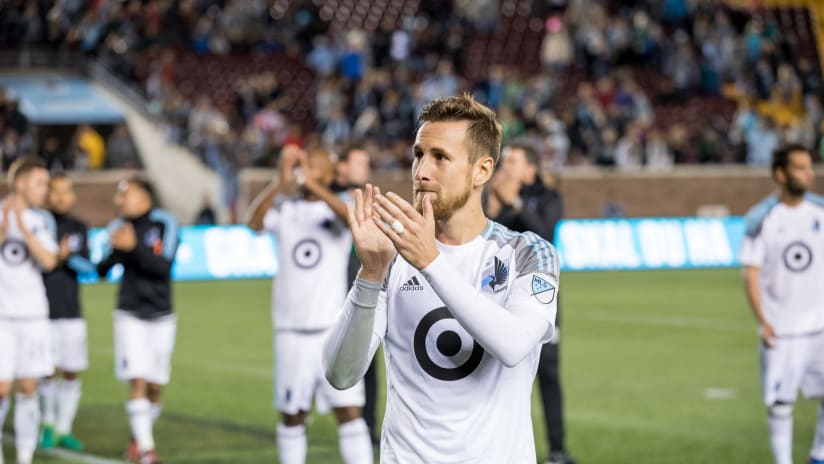There is a certain simplicity to soccer that makes it special.
The simple creativity involved in stringing together a set of passes to weave down the pitch, every player involved. The simple pleasure of showing up for match day at the stadium or a bar and immediately bonding with complete strangers through a love of the game and your team. The straightforward format of the game itself: two 45-minute halves played straight through, with all you really need being a ball, a few lines and a pair of goals.
The physical language of the game is universal. Wherever you’re from, whatever language you speak, a simple motion of your hand signaling forward can indicate “play me through,” a hand motion in front of you, pointing down, says “play my feet.”
The game’s simplicity helps it transcend borders. Millions of fans in the U.S. wake up early on Saturday mornings to watch their team compete in the English Premier League, with a lingering hope that Champions League play will resume the following Tuesday and Wednesday. They do it because of the pure beauty of the game, but also to feel they’re a part of something bigger — a community, a tradition.
“In Europe, everyone from a particular city is ingrained and supports its local soccer team,” said Minnesota United Chief Executive Officer, Chris Wright. “We have an opportunity to achieve that with MNUFC. We are such a diverse community of fans from all over the world. I believe we can become every person’s ‘team’ that lives in our great and diverse community. The game brings people together. It inspires, motivates and unites people in a sense of community and belonging.”
Because soccer is the world’s game, it’s important to MNUFC that the world be represented in the team, in the organization and in the stands. Like everything about becoming a top-division team, it won’t happen immediately, but it’s something the club is pursuing by building relationships with diverse communities in the Twin Cities.
“Rome wasn't built in a day, and authentic relationships aren't developed overnight. We are working every day to find ways to support communities that are marginalized or underserved,” explained Community Relations Coordinator Alyssa Anderson. "We have a presence at the annual Hmong International Freedom Festival, and honored Hmong service members at our Salute to Freedom match. We work closely with West Bank Athletic Club, hosting free soccer clinics, visiting the community center, and being involved in the annual Somali Independence Day Festival. We partner with St. Paul Public Schools to incentivize attendance, and close the educational achievement gap. We work with the LGBTQ community, honoring leaders from the community and participating in TC Pride.”
Minnesota United wants to speak to all these communities through the game of soccer and, in turn, hear from them. A passion for soccer is built on and in turn builds upon shared experiences —even if they’re not always entirely pleasant ones. Minnesotans endured freezing temperatures and snowy conditions to watch the Loons face off against Atlanta United in the first home match of their inaugural MLS season. They also had to stomach a dispiriting loss in that match, but it hardly broke their spirit. And that’s part of the simple requirement for fandom in Minnesota: if you choose to be here, you belong.
“We value inclusiveness as an organization, and we want our fanbase to reflect that,” said Anderson. “Our supporters groups have a banner they unfurl on match day that reads, ‘All Fans Welcome,’ and I believe that speaks to the heartbeat of our organization.”
The game of soccer has united people all over the world through its simple joys, and Minnesota is its latest project. That’s the impact of soccer.


